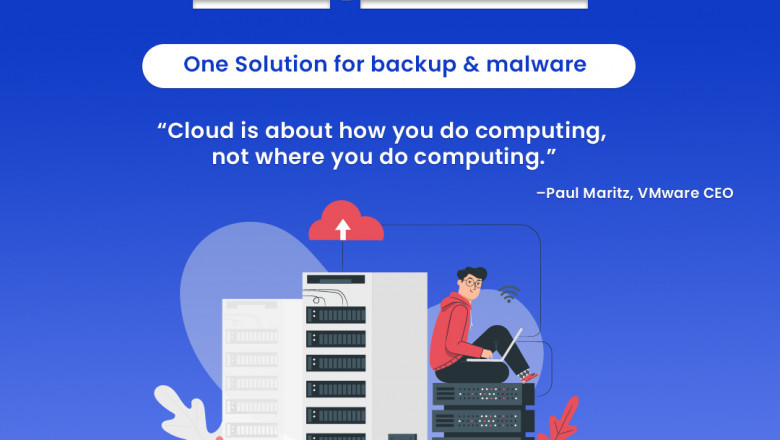views

File-Sharing VS Cloud Backup: What’s The Difference?
File sharing and cloud backup are two different terms. However, surprisingly many people have misconceptions regarding these terms. Backup means having a copy of data on a remote server so that you can get it back whenever you want. On the other hand, file sharing is all about distributing or providing access to data such as multimedia and documents.
Although they both maintain data, their business activities are distinct. The purpose of file sharing is to rapidly and easily transfer and access data via the internet. Backups, on the other hand, are more concerned with offering better protection against data loss.
You can opt for file-sharing systems like Google Drive, One Drive, and so on to establish many users similar to an Active Directory, assigning them logins & permissions and data sharing. As far as cloud backup solutions are concerned, go with Datanet, partnered with the world’s leading cloud backup provider Acronis.
Pros Of File Sharing
-
Data storage on local drives is less durable. To keep your data secure, the data centers provide the highest level of security and redundancy.
-
It's an excellent idea to create files remotely, especially if you need to distribute them.
Cons Of File Sharing
-
Data uploading is a time-consuming process.
-
Resources are required.
-
It is necessary to have access to the internet
Pros Of Cloud Backup
-
Cloud backup saves you money as you don’t need to set up an infrastructure and pay people to maintain servers.
-
Data backed up to the cloud will be protected from disasters, allowing your company to resume operations quickly.
-
You can access the data anytime from anywhere.
-
Data are prone to cyber-attacks. Along with corrupting or deleting production data, attackers frequently delete or tamper with local backups. Having segregated off-site cloud backup protects that data.
-
You can scale cloud backup solutions up and down according to your requirements. Scaling cloud services is simple and can be done on-demand – albeit your subscription fee will almost certainly change as a result.
Cons Of Cloud Backup
Every coin has two sides and so is the case with backup. No doubt cloud backup has a plethora of advantages and is much better than local or traditional methods. However, it too has some disadvantages.
-
It might take hours to retrieve a full backup from the cloud, depending on your internet access and data amount.
-
Choosing a cloud backup service provider needs careful examination. While choosing the cloud backup provider, you have to look at the policy on terminated contracts carefully and thoroughly. If you decide to cancel your contract, you'll want to make sure you can download your backup.
Bottomline
Cloud backup solutions and file-sharing applications are completely different from each other. Don’t mistake them for the same. Moreover, businesses must have a backup on Cloud as it ensures data safety and recovery. Opt for the best cloud backup service provider Datanet, where you will get the world’s best cloud backup solutions from Acronis at the lowest price in the market.











